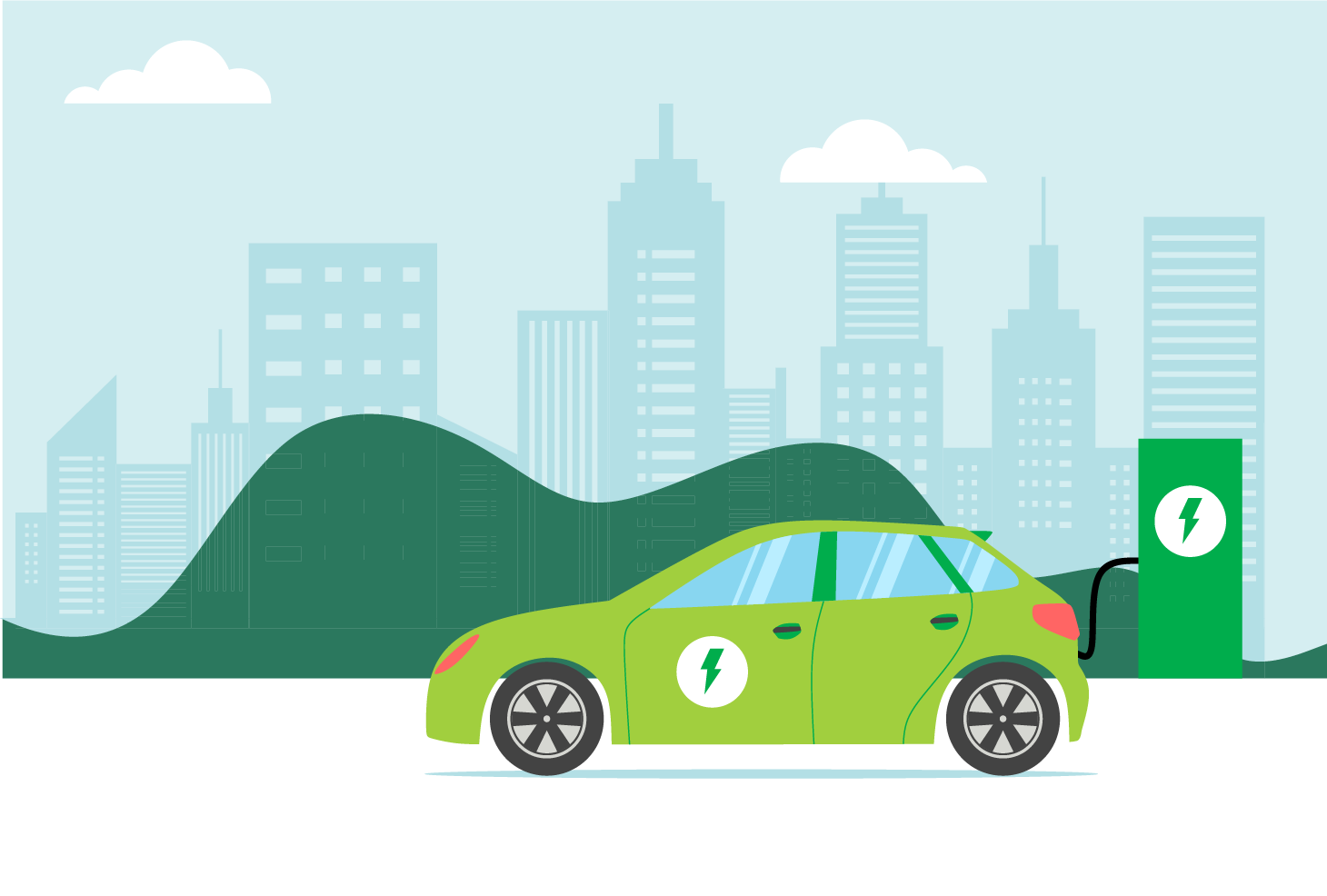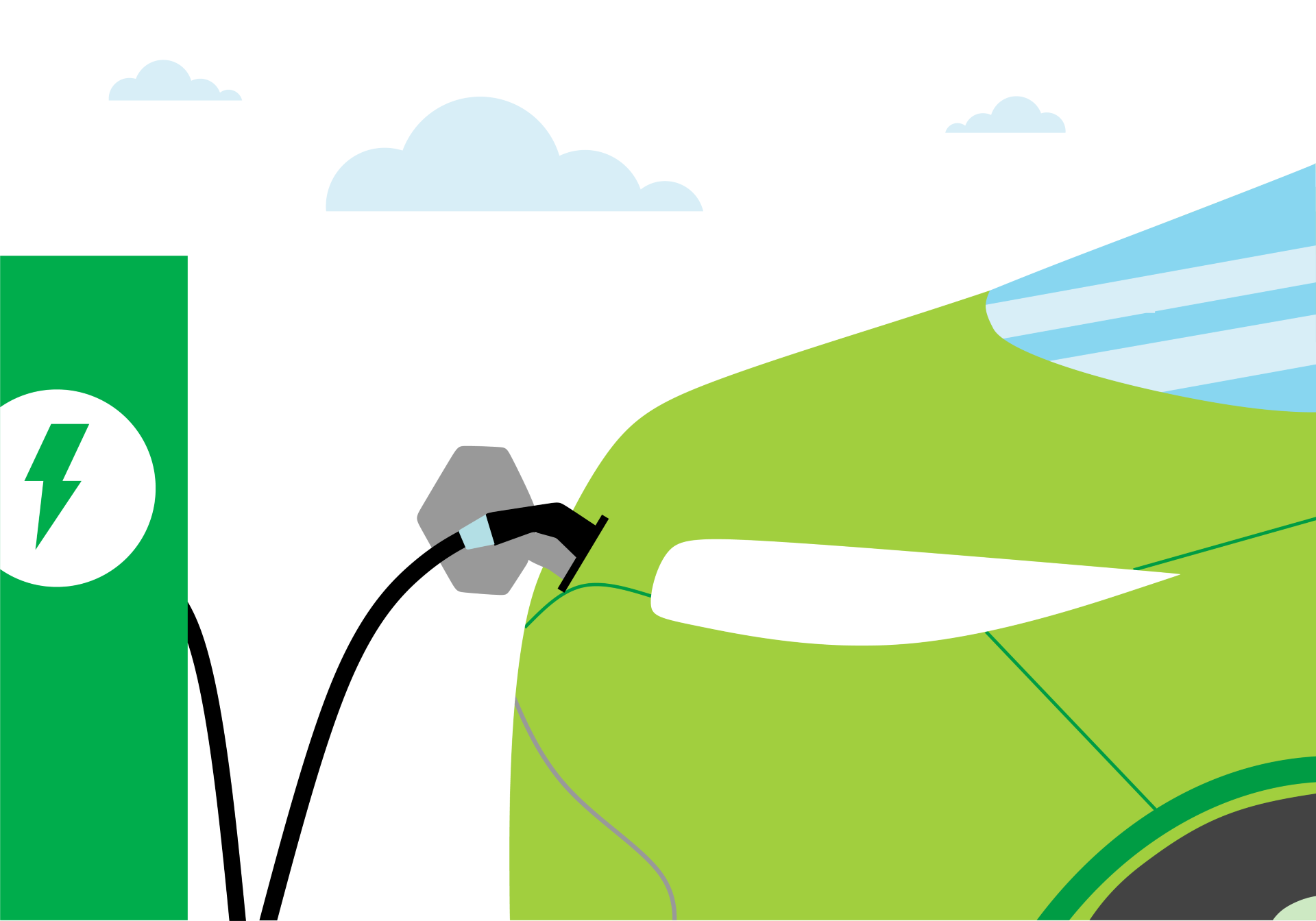Electric vehicles (EVs) have taken centre stage in discussions about the future of transportation, with policies driving the shift towards zero-emission vehicles.
While EVs are seen as the frontrunners in replacing combustion engines, their future is still subject to debate.
The ongoing innovation and policy changes will shape the outcome.
As Professor Colin Herron said in our podcast:

EVs are clearly a critical part of that transition, supported by policy and innovation.
What the Article Contains
We recently conducted a detailed podcast with Professor Colin Herron, CBE for his take on the future of EV technology.
Electric Cars: Concept and Innovation
The electric car concept dates back to the 19th century but has only gained momentum in recent decades with technological advances.
Today's EVs offer superior energy conversion efficiency compared to combustion-engine cars.
In the above podcast, Colin Herron recalls the early days when only the Nissan Leaf and a few other models were available.
Presently, modern EVs come with innovations in battery technology, design, and smart features that are pushing boundaries.
There is still much to be done, particularly around improving battery life and addressing range anxiety, as Colin believes that there are still many anxieties remaining about longevity and range, which still deter some customers.
Will Electric Cars Dominate the Automotive Industry?
While policies in the UK, EU, and California suggest a future dominated by EVs, the reality is more complex.
A mixed future is predicted with hydrogen and other alternatives playing a role.
Colin contends this in the Podcast .

There are many reasons for this.
Firstly, the hydrogen infrastructure is vastly underdeveloped.
In the UK, for example, there are only a handful of hydrogen refuelling stations available, and this number is shrinking rather than expanding.
Hydrogen stations are also costly to build and maintain, and there has been little momentum to increase them.
Even in regions like California, where hydrogen cars like the Toyota Mirai were once promoted, adoption has slowed dramatically, with manufacturers offering significant discounts due to low demand.
China's influence on pricing and production efficiency is also pivotal, and the country's dominance in EV manufacturing could disrupt traditional markets.
The arrival of cheaper Chinese-made EVs might force European manufacturers to reconsider their strategies.
All these factors suggest that, while the rise of electric vehicles seems inevitable, they are unlikely to completely dominate the market without overcoming infrastructure challenges and global competition. .

Challenges and Criticism of EVs
One major criticism is the high upfront cost, which remains 30-40% higher than traditional vehicles, though the recent trends shows that the difference is decreasing year by year.
Charging infrastructure, particularly in urban environments, is also a hurdle. While suburban drivers can install home chargers, urban dwellers often face long waits at public stations.
The environmental benefits of EVs are mitigated by the carbon footprint of battery production. Efforts to recycle lithium, cobalt, and other materials are ongoing, but industrial-scale recycling remains a future goal.
Owning and Driving an EV: Today vs. the Future
Owning an EV today comes with benefits such as lower running costs and fewer emissions, but also challenges, particularly around charging and battery life.
Consumers are still concerned about battery degradation, though research shows that batteries last longer than anticipated.
Professor Colin mentions in the podcast:

This offers reassurance for future buyers.
Looking ahead, improvements in charging infrastructure and battery recycling are expected to address these concerns.
As more fast chargers are rolled out, range anxiety will decrease. Battery recycling and cost reductions from increased production efficiency will make EVs more affordable and sustainable.
So, while current EV ownership presents some hurdles, future developments in infrastructure, technology, and cost-efficiency will make electric vehicles a more practical and attractive option for the average consumer.

Is EV Infrastructure Ready?
The infrastructure for EVs is far from ready. Charging points are sparse in many urban areas, and fast-charging technology needs further expansion.
Countries like Norway have shown that building infrastructure is more impactful than subsidies for EV purchases.
Battery recycling is still a concern.

If these issues are not addressed, the uptake of EVs could slow.
To know more about the future of the EV battery read our blog where go in detail in this topic.
The Future Beyond EVs
While EVs are the focus now, the future of mobility may include other technologies.
Autonomous vehicles, shared mobility, and alternative fuels like synthetic e-fuels could play a role in complementing or even replacing EVs in the coming decades.
The Autonomous vehicles (AVs) are rapidly advancing with the integration of artificial intelligence (AI) and machine learning. These technologies are enhancing the ability of vehicles to navigate and make real time decisions safely.
Industry experts predict that autonomous vehicles will reach a critical mass around 2026, with pilot programs for fully autonomous trucks and robot taxis already underway in markets like China and the US.
Widespread adoption will depend on regulatory support, technological advancements, and significant capital investments for handling edge cases and complex driving environments (source: Bain, McKinsey and Company).
Synthetic e-fuels, or electro-fuels, are emerging as an alternative to traditional fuels, offering near-carbon-neutral solutions for hard-to-electrify vehicles like airplanes and heavy-duty trucks. Companies like Porsche are investing in scaling up production, though the high cost remains a barrier for widespread adoption (source: ASME)

Conclusion
While electric cars are the current focus of the automotive industry, the future of mobility could involve a broader range of technologies and innovations.
EVs may be a major stepping stone, but they are just the beginning of a more holistic transformation of how we move towards a cleaner, more efficient transport system in the decades to come.
Motorfinity
At Motorfinity, we pride ourselves on offering exclusive discount across all makes and models.
Whether you're looking for efficiency, style, or cutting-edge technology, our selection is designed to meet every need.
You can choose from Personal Contract Purchase (PCP), Hire Purchase (HP), and leasing deals.
Each option provides flexibility and benefits tailored to different driving habits and budgetary needs.
Are you eligible?
Our nation's Armed Forces, Veterans, Emergency Services, NHS, Police and Prison Services, the Education and Social Care sectors and more from our eligible audience.





